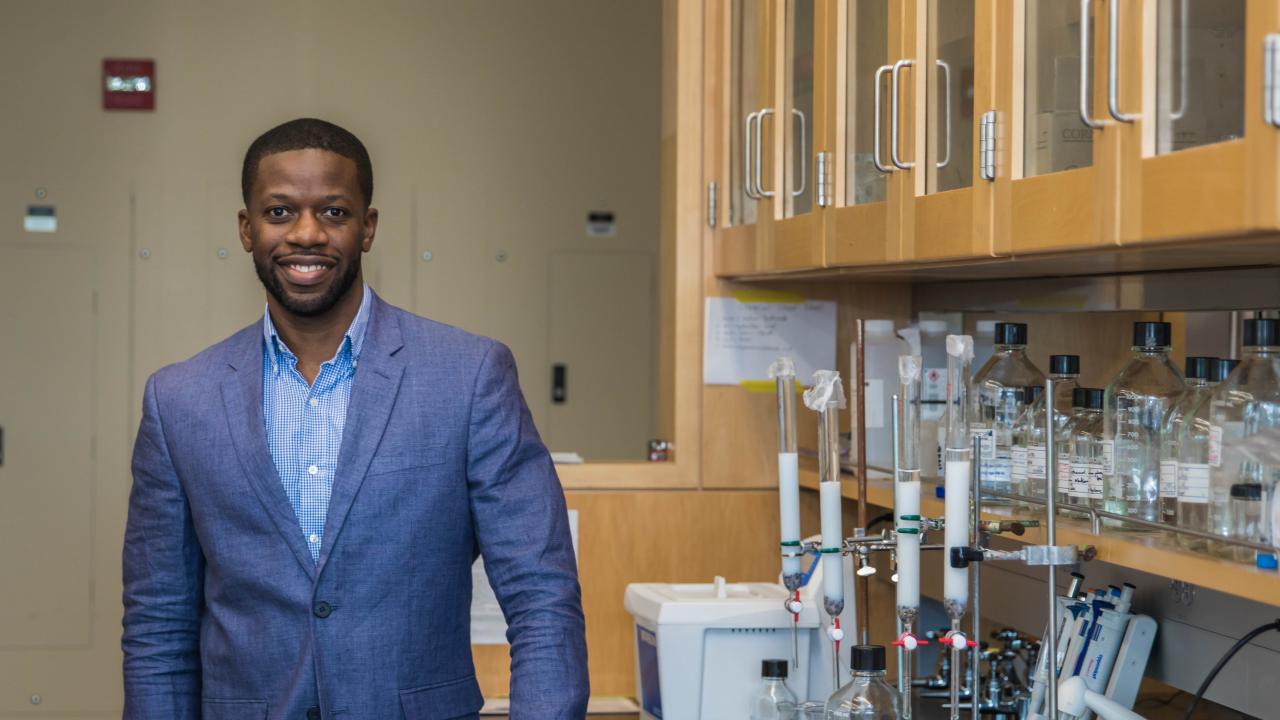
Faculty Spotlight: Jamal S. Lewis
Jamal S. Lewis is an assistant professor in the biomedical engineering department. His lab (https://www.ucdavislewislab.com/) focuses on the development of biomaterial systems that can manipulate the immune system. The group plans to design the next generation of immunotherapeutics for applications in immune-related diseases. This multidisciplinary work incorporates aspects of biomaterials engineering, drug delivery and immunology. We recently sat down with him to catch up on some of his latest achievements and his thoughts on being Black in BME.
You were recently included in the University of Florida’s Amplifying Black Voices feature. What makes you the proudest being acknowledged as a Black voice in the BME community?
As an alumnus of the University of Florida BME, I was really proud that they took the bold step of creating an entire publication to air the voices of the Black community in BME. I think Black professors, students, and staff often feel marginalized in academia but they continue to plod through the proverbial desert in hoping that things will eventually change. Last year, because of the public lynching of George Floyd (and the pandemic), many were forced to reflect on how the academe treats their Black colleagues. Since then, there have been a number of initiatives, including the BME Health Equity and Wellness Committee here at UCD. UF BME went the extra mile and created a living document for Blacks across the spectrum in BME to highlight their experiences. I’m happy they invited me to contribute for a number of reasons, but particularly to give the next generation of Black scientists and engineers a ‘vision of the possible’.
Given the low percentage of minorities in the BME field, what advice would you give to some of today’s young up and coming Black researchers?
I think for young Black researchers, the formula is pretty straightforward. First figure out if science and engineering is your passion. Once you’re past that step, then you have to commit to science and be disciplined. The STEM field is the most challenging career choice but a little organization and self-discipline goes a long way in ensuring your success. I would also strongly recommend young scientists to find a mentor (or mentors) who is interested in their success. They should also avidly read current/ popular science publications and if possible, join a research laboratory.
What excites you most about mentoring young scientists?
One of my favorite pastimes is gardening. There is something very rewarding about bringing about that metamorphic change from seed to fruit. Similarly, helping to support and mold the growth of an individual is cathartic in some sense, but also sanative. As a mentor, I get great joy from seeing the growth in my mentees as they learn and progress in their academic and professional careers. I strongly believe this is the main reason why professors never ‘retire’, we are lifelong learners and lifelong teachers.
How do you feel about being named one of the 2020 Young Innovators of Cellular and Molecular Bioengineering?
This was a fantastic and important honor for me, especially since some brilliant scientists have been previously recognized by this prestigious journal, including our very own Professors - Cheemeng Tan and Erkin Seker. It gives further credence that the work my lab is pursuing is exciting and impactful.
